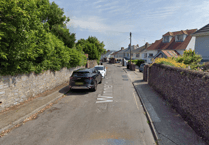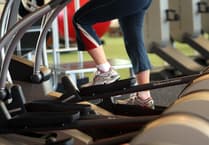AMBULANCE chiefs in the south west are appealing to the public to ‘think carefully’ before calling 999 during today’s industrial action by paramedics.
Members of the South Western Ambulance Service are among five services in England taking part in strike action today.
The action is taking place in a dispute over pay and staffing and involves paramedics, control room staff and support workers.
The three main ambulance unions - Unison, GMB and Unite - are taking part.
Unions are asking for an above inflation pay rise but have not set a specific figure and they argue the offer needs to be high enough to prevent an ambulance staff recruitment crisis.
The action comes as the NHS faces a winter crisis and reports of ambulances under constant pressure.
SWAS says yesterday there were 473 patients waiting for ambulances across the South West, with 123 ambulances outside hospitals waiting to handover patients.
The UK government says pay rises for ambulance workers and nurses were decided by independent pay review bodies.
Ambulance spokespeople say a combination of the cold weather, busy hospitals and the likely impact of the upcoming health service strikes are all ‘contributory factors to the challenges the service is facing’.
On strike days, patients should only call 999 if it is a medical or mental health emergency when someone is seriously ill or injured and their life is at risk.
Ambulances will still be able to respond in these situations, but this may only be where there is the most immediate risk to life.
Where the situation is not life-threatening, alternative support will be available through NHS 111 online or through calling NHS 111, and where possible, it is advised that to arrange alternative transport.
Will Warrender, chief executive at the South Western Ambulance Service, said: ‘Please help us to help those patients who need us most by only calling 999 if a patient has a life-threatening condition or illness.
‘We know there are patients waiting for an ambulance, and we will get to you as soon as we can.
‘We are sorry that we are unable to respond as quickly as we would like. ‘We are doing all we can to manage winter pressures and the upcoming industrial action, including receiving military support during industrial action days which will allow our ambulance clinicians to be manning more ambulances and reach patients more quickly.
‘The public can help us by only calling 999 for life threatening emergencies, we absolutely must have crews available for the most life-threatening conditions and we will be prioritising these patients.
‘Please do not call back asking for an estimated time of arrival of an ambulance.
‘We cannot provide this information and it blocks our lines from other callers reaching us.
‘If the condition of a patient is not life-threatening we may direct you to alternative services. So please help us by accessing the right service for the care you need.
‘I’d like to express my huge thanks to our people and NHS partners working to deliver the best possible care they can for our patients over the coming weeks.’
SWAS has issued the following advice:
For self care, visit visit NHS 111 online for advice for things like grazed knees, coughs and colds * Pharmacy – visit local pharmacies for headaches, upset stomachs, aches and pains * NHS 111 – visit NHS 111 online or call 111 for advice and support 24hours a day, seven days a week * GP – call a GP for symptoms that won’t go away * Minor injury unit – attend your local minor injuries unit for urgent not life threatening conditions and injuries such as sprains, fractures and burns.
call 999 for life-threatening emergencies such as cardiac arrest, loss of consciousness, fits that aren’t stopping, chest pain, breathing difficulties, severe bleeding, severe allergic reactions, suspected stroke and serious head injuries.





Comments
This article has no comments yet. Be the first to leave a comment.